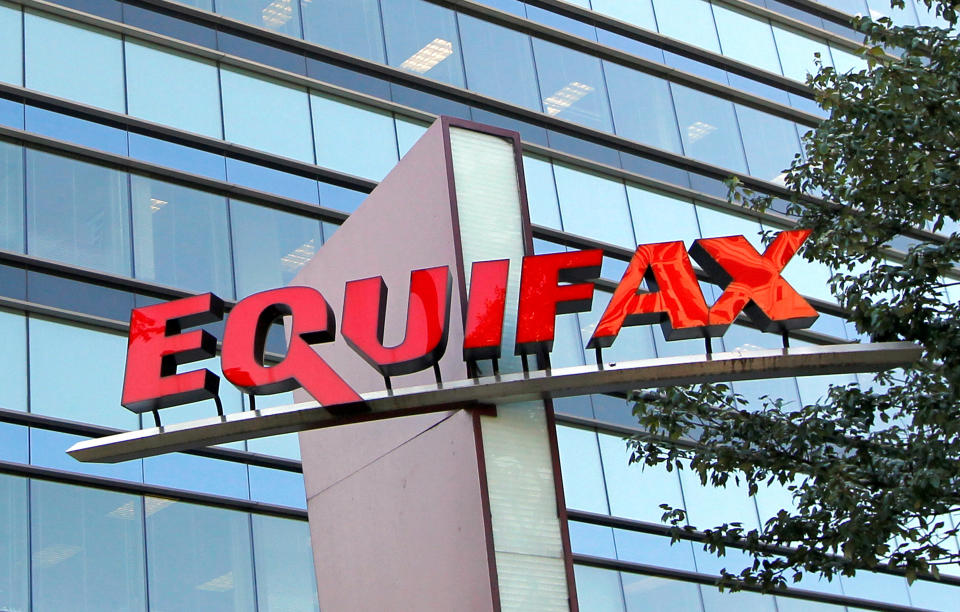People are beating Equifax in appeals court and winning thousands
A number of individuals who had successfully sued Equifax (EFX) in San Francisco small claims court in January have won the appeal filed by the credit agency, cementing judgments between $5,490 and $7,440 each.
The initial victories, delivered to the plaintiffs en masse by a sympathetic judge, were thought to be up in the air, as other consumers had attempted to sue but were denied by other judges thanks to the vagueness of the damages — paying for credit monitoring, (justified) paranoia, and overall diminished security.
Furthermore, these verdicts had been delivered without the help of lawyers, which are typically not permitted in the informal environment of a small claims court.
On March 8th Christian Haigh and Christina Brandt Bernstein managed to triumph over the credit giant, disgraced by its data breach that had left 150 million people with exposed personal information, including Social Security numbers. Another plaintiff, Jason Wittig, won on March 1.

According to Haigh, who is not a lawyer but has informal legal experience through the litigation financing company, Legalist, Equifax arrived at the courthouse with a VP, an in-house counsel, and an experienced lawyer from King & Spalding, a top law firm famous for defending the Defense of Marriage Act for the U.S. House.
Haigh and Wittig did not have lawyers; Bernstein was represented by her husband, a lawyer.
The trials took around two hours and were somewhat contentious: Equifax came with a high-powered legal team to an informal setting usually reserved for petty disputes involving five-figure sums or less. (Corporate lawyers often charge $1,200 to $1,500 per hour.)
The arguments
According to Haigh, Equifax’s major objective was to convince the judge to apply district court rules to a small claims situation. Hearsay, for example, can be admitted if a judge wants it to in small claims; in district courts the standards are higher.
Equifax did not respond to numerous requests for comment.
“I don’t think they had been in small claims court all that much,” Haigh told Yahoo Finance. “It was very bizarre. Also amusing: It’s really like taking a square peg to a round hole. You don’t hire King & Spalding for small claims.”
Given that the appeal was for a small claims situation, the judge kept the small claims rules, which created friction in a number of situations. One of the tactics Equifax attempted was arguing that the Fair Credit Reporting Act, which laid the grounds for Haigh’s damages, was not referenced in the initial complaint.
Haigh argued that this is normal; as a small claims complaint form is a superficial fill-in-the-blank document, designed to be short. There are just two lines to write why money is owed. Equifax was spurned.
The issue came up again when Haigh attempted to bring in a report from Sen. Elizabeth Warren’s (D-Mass.) office, which outlined Equifax’s sins. Equifax objected to the report, deeming it “unverified hearsay.” Haigh asked the judge to decide, and noted it came from a senator’s office and should have bearing. He won that argument, too.
The crux of the case came down to how the damages were framed. Equifax, which had closely scrutinized Haigh’s credit report it had on file, found that there was no weird activity. But Haigh’s argument was that he was more likely to have his identity stolen in the future, and thus had a good reason to request damages of the costs of credit monitoring services as well as punitive damages.
“What I wanted to make clear to the court was my [Social Security number] had been breached and other personal identifiable information had been breached,” Haigh said. During cross examination, he asked and Equifax said yes. “That means my SSN is in the hands of someone other than Equifax,” he said.
What this victory means
At a glance, it may seem odd that Equifax is fighting these small claims with as much legal firepower as they are. But according to Scott Vernick, a trial lawyer at Fox Rothschield, Equifax has to fight these to maintain a consistent legal position.
“Even though it costs money, I’m sure they think it’s all in aid of the broader objective: maintaining consistent defense,” Vernick told Yahoo Finance. With the extremely high stakes of a class action, fighting a few small claims is small potatoes. (However, thanks to a chatbot called DoNotPay, which drafts a complaint automatically by filling in the blanks, hundreds of consumers — if not more — have sued in small claims.)
The victories thus far, upheld in appeal, are potentially promising, and establish some sort of mild precedent for consumers. But with vague damages — the possibility that identity theft might happen — it’s unclear how judges en masse will react to the arguments put forward. But there is a sort of irony in play when it comes to coming to a number: Equifax’s own credit monitoring products TrustedID has — or had, it’s free now — a price tag.
As for Haigh’s money, he said it’s not entirely clear what happens next.
“I think I have to reach out to them and request payment,” he said. “And if they don’t pay, I contact the Sheriff, get a shopping cart, and we go over.”
—
Ethan Wolff-Mann is a writer at Yahoo Finance. Follow him on Twitter @ewolffmann. Confidential tip line: FinanceTips[at]oath[.com].
People are taking Equifax to small-claims court — and winning
Elizabeth Warren’s bill would thrash Equifax for another data breach
The worst company of the year, according to Yahoo Finance readers

